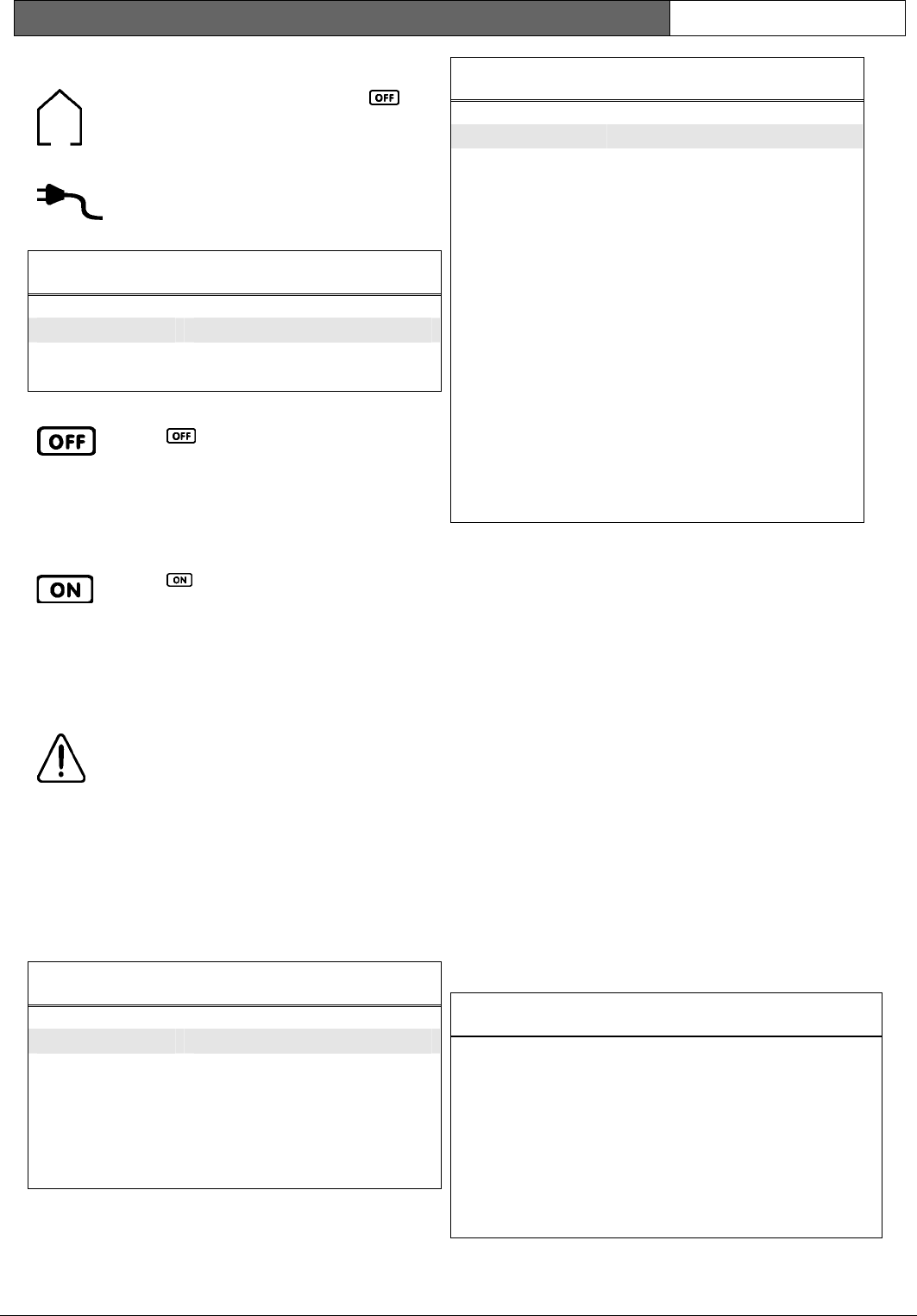
CC880/LP880, SC8016 | Operators Guide | 4.0 Arming the System EN | 7
Bosch Security Systems | 6/04 | 920036O.OG.162
3.4 System Disarmed
This indicator displays with the
indicator when the system is disarmed.
3.5 MAINS Indicator
The MAINS indicator displays that the
systems AC mains supply is normal or
failed.
Table 5: MAINS Indicator
MAINS Indicator Definition
On AC mains power normal.
Flashing AC mains supply failed.
3.6 Off Indicator/Zone Sealed
The
indicator displays when the
system is in the disarmed state and
flashes when a zone becomes unsealed
during the disarmed state. The indicator
stops flashing when all zones are sealed.
3.7 On Indicator/Zone In Alarm
The
indicator displays when the
system is armed in AWAY Mode and
flashed when an alarm occurs. The
indicator resets once a valid user code
is entered.
3.8 FAULT Indicator
The FAULT indicator displays when
the system detects a system fault. See
Section 14.0 Fault Analysis Mode for
additional information on system faults.
Every time a new system fault is
detected (such as, FAULT indicator
flashing), the codepad beeps once every
minute. Pressing the [#] button once
cancels the once a minute beep and
acknowledges the fault (such as,
FAULT indicator on steady).
Table 6: FAULT Indicator
FAULT Indicator Definition
On There is a system fault that must
be rectified.
Off The system is normal, there are
no faults.
Flashing There is a system fault that must
be acknowledged.
3.9 Audible Indications
Table 7 defines the audible indicators emitted by the
codepad buzzer.
Table 7: Audible Indicators
Audible Indicator Definition
Once short beep A button was pressed on the
codepad, or end of exit time
when armed in STAY Mode 1 or
STAY Mode 2.
Two short beeps The system accepted your
code.
Three short beeps The requested function was
executed.
One long beep Indicates the end of exit time
when armed in AWAY Mode, or
the requested operation was
denied or aborted.
One beep every
second
Walk Test Mode is currently
active or warning before
automatic arming takes place.
One short beep
every minute
There is a system fault waiting
to be acknowledged.
4.0 Arming the System
There are several ways to arm the system, depending
on whether you are:
• leaving the premises and require all active zones
to be in a ready state for an intruder, or
• remaining in the premises and only require part
of the system to be in a ready state for an
intruder.
If a zone is not sealed at the end of exit time, the
zone is automatically isolated and is constantly
displayed on the remote codepad. The zone becomes
an active part of the system when the zone reseals.
(For example, if a window is left open after exit time
expires, the window is not an active part of the
system until the window is closed. Opening the
window after exit time expires causes an alarm
condition.)
Table 8 defines the different methods for arming the
system.
Table 8: Arming Methods
AWAY Mode
Arms the entire system. See Section 4.2
Arming in AWAY Mode.
STAY Mode 1
Arms all zones except those programmed
to be automatically isolated by the installer.
See Section 4.3 Arming in STAY Mode 1.
STAY Mode 2
Arms all zones except those programmed
to be automatically isolated by the master
code holder. See Section 4.4 Arming in
STAY Mode 2.


















